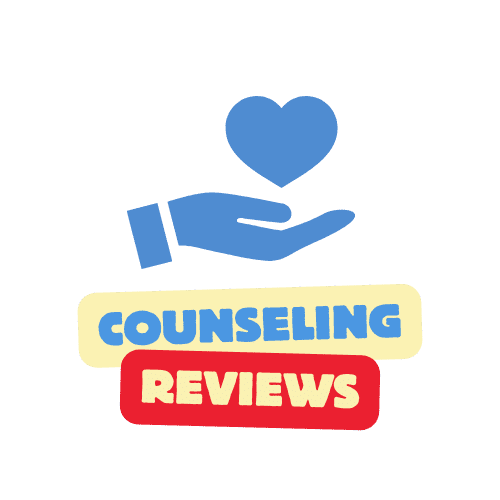The end of a relationship is never easy. Whether it has lasted for one or ten years, the final conclusion of marriage and family can be deeply wounding.
Current data suggests that nearly half of all first marriages will eventually lead to separation or divorce. People require a degree of reassurance and encouragement to better handle the hardships that come with this.
Sometimes, the support of family, friends, and peers can be enough, but other times, you may feel you need something more.
The purpose of divorce counseling is to help people maneuver the end of a relationship – both in legal and emotional terms. Divorce counseling benefits & risks are essential considerations when deciding to seek counseling. Knowing when to seek out divorce counseling, what to expect, and how it can help you is crucial for a smoother transition during this challenging time.
What is Divorce Counseling?
Divorce counseling is a form of therapy that helps couples, or individuals, deal with and manage the entire divorce. Therapy doesn’t start once you draw up and sign the papers. Divorce counseling and licensed professional counselor can guide and assist you before, during, and following the separation.

Divorce therapy can benefit both partners and make the divorce easier to handle emotionally, legally, and logistically. It also helps couples maintain a civil and cooperative demeanor with each other throughout the break-up.
Remaining respectful is always important, but especially so when children are involved. Divorce counseling isn’t beneficial only to the separating parties, but to any family members that can get caught up in the affair.
What are the goals of divorce counseling?
The primary purpose of divorce counseling is to aid the couple seeking help – whatever that may entail. Different people will require different means of support and can benefit from therapy in individual ways.
Sometimes both partners agree to terminate the relationship, other times, one partner may want to salvage the marriage, or they may both be unsure of how to proceed.
Divorce counselors will guide you through the experience, equip you with appropriate tools to handle the situation, and help you reach a decision. They cannot, will not, and should not make the decision to end a relationship for you.
Benefits of Divorce Counseling
However unpleasant it may be, there’s no denying that divorce is a huge moment in a person’s life. During and following this life-changing event, major life changes will occur. Therapy prepares you to better face upcoming challenges.
Divorce counseling can, in particular, help you:
- Manage any negative emotions that emerge – such as anger, sadness, depression, etc;
- Handle the legal process;
- Develop healthy coping mechanisms and habits to face future challenges;
- Communicate and cooperate with your spouse during and following the divorce;
- Understand why the relationship ended and the role you played;
As mentioned, counseling can benefit not only the separating couple but also children and other family members.
What are the stages of divorce?
Divorce typically involves several emotional and logistical stages:
- Contemplation: The initial stage is when one or both partners start considering divorce as a solution to their problems. It’s a period of reflection and evaluation of the relationship.
- Decision: This stage involves the actual decision to pursue divorce. It can be fraught with emotional turmoil and discussion about the best course of action.
- Legal Proceedings: The legal process begins with the filing of divorce papers. This stage may include negotiations, asset division, and custody arrangements.
- Emotional Distress: Emotional turmoil intensifies as the reality of the divorce sets in. Feelings of grief, anger, sadness, and anxiety are common.
- Transition and Adjustment: Individuals and families adapt to the new circumstances, including co-parenting, single life, and establishing new routines.
- Acceptance: Ultimately, individuals come to terms with the divorce, finding closure and moving forward in their lives.
It’s important to note that these stages can overlap or vary in duration depending on the specific circumstances of the divorce.
Marriage Counseling – Does Therapy Cause Divorce?
Marriage counseling is the first form of therapy a couple will seek out. Usually, this is done in the hopes of saving a deteriorating relationship.
However, while partners give couples therapy a go because they are looking to salvage the marriage, this may not always work out. Matter of fact, the primary goal of couple’s therapy isn’t to repair your relationship at all, but rather to arrive at the best outcome for everyone involved.
A marriage counselor can help a couple mend their bond and stay together. However, sometimes therapy reveals issues that can’t be resolved and can lead partners to realize that divorce may be the best option.
From here, other forms of talk therapy can assist couples in the separation process.
What is Counseling Before Divorce Meant to Do?
Undergoing counseling before separating can help you lay everything out on the table and be sure of your decision – no matter what choice you’ve made. All types of couples counseling will help participants communicate better, and reflect on the relationship and the source of the issues.
If you want to make sure that going through a divorce, is the right option, or if one partner still wants to attempt reconciliation, you may be in need of pre-divorce discernment counseling.
What Is a Discernment Counselor?
Couples typically seek out a discernment of divorce counselor, when at least one of them is considering leaving the partnership.
While marriage counseling helps patients build healthy communication methods and trust in the hopes of repairing a union, discernment therapy is only concerned with whether or not you should attempt salvaging the relationship at all. Discernment counseling can help people decide if they want to stay married or go ahead with a divorce.
Therapy also helps former partners maintain a respectful attitude towards one another, and better communicate following the dissolution of their romantic relationship. This is particularly helpful when the couple has children and opts to co-parent.
According to data gathered on the impact of discernment therapy, the majority of participants report that their relationships with their former partner post-divorce were cooperative in one way or another.
Post-divorce Counseling
Research has found that people who have had a history of major depressive disorder are more likely to suffer a depressive episode following the split. Even if someone hasn’t struggled emotionally before the marriage ended, can benefit from post-divorce counseling.
Therapy can offer support and tools to help you maintain a healthy emotional state following a huge life-altering event. In a time of re-building, some people may find post-divorce counseling to be an indispensable asset.
How Do You Counsel a Divorced Person?
The finalization of a divorce doesn’t mean the end of your journey. Post-divorce therapy helps you deal with the aftermath of the entire process.
Post-divorce counseling will work on providing encouragement in creating a new life independent from the marriage and resolving any residual negative emotions regarding your divorce or former spouse.
What Can Divorce Counseling Help With?
- Navigating the Divorce Process: Divorce counseling assists individuals in handling the emotional stages of divorce, which can include denial, anger, bargaining, depression, and ultimately, acceptance. It also provides guidance through the logistical steps of divorce, from the decision to divorce to post-divorce life, such as dating or adjusting to life without a former partner.
- Providing a Safe Space for All: Divorce affects the entire family, including children and extended family members. A skilled therapist creates a safe environment for everyone to express their feelings and emotions. This is especially important for children who may find it challenging to share their feelings with their parents. A neutral, compassionate therapist can help children communicate and ensures parents understand and support their children during this difficult time.
- Insight into Relationship Dynamics: Divorce counseling offers insight into the complexities of the relationship, helping individuals avoid the trap of the Fundamental Attribution Error. It assists in recognizing the shared responsibility in the relationship’s breakdown, promoting understanding and forgiveness. This is a crucial step for personal healing and future relationship success.
- Developing Healthy Coping Strategies: Divorce is an exceptionally stressful life event. A therapist helps individuals identify and implement healthy coping strategies to manage stress. These might include exercise, a balanced diet, sufficient sleep, and engaging in enjoyable activities, as opposed to harmful coping mechanisms like alcohol or substance abuse.
- Enhancing Communication Skills: Effective communication is vital during and after a divorce, particularly if children are involved. A divorce therapist helps individuals develop healthy communication skills to successfully co-parent and maintain a positive, post-divorce relationship, which can be beneficial for the children’s well-being.
How do you rebuild after a separation?
Rebuilding after a separation can be challenging, but it’s a vital process for personal growth and healing. Start by focusing on self-care – prioritize your physical and emotional well-being. Seek support from friends, family, or a therapist to navigate your feelings and gain perspective. Embrace new opportunities and interests, as they can provide a sense of purpose and joy. Reconnect with your goals and aspirations, and set realistic expectations for your future. Ultimately, rebuilding after a separation is about rediscovering your identity and building a life that aligns with your values and desires.
Verdict – When to Seek Out Divorce Counseling
Divorce counseling has been shown to be effective in helping people both during and following a divorce, so you can reach out for help any time you feel the need.
If you’re having a negative emotional reaction, find it difficult to remain amicable with your spouse, or see the break-up having a negative effect on your children – you should consider seeking divorce counseling first.
While it will never be a pleasant experience, therapy can make separation and divorce a lot easier on all involved parties. So, whether you’re thinking about a divorce or are in the process of finalizing it- divorce counseling can help you navigate life in trying times.





